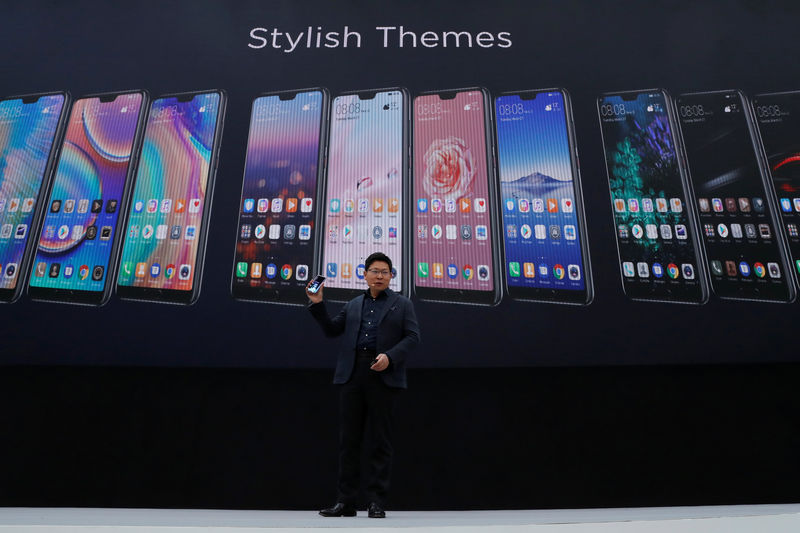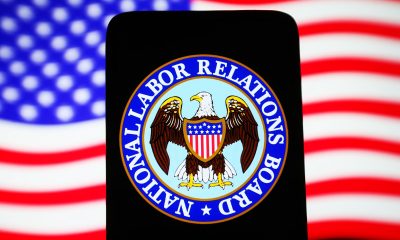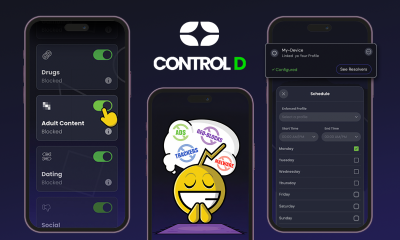Investing
Exclusive-Nvidia’s plans for sales to Huawei imperiled if U.S. tightens Huawei curbs-draft

© Reuters. FILE PHOTO: The logo of NVIDIA as seen at its corporate headquarters in Santa Clara, California, in May of 2022. Courtesy NVIDIA/Handout via REUTERS
By Alexandra Alper
WASHINGTON (Reuters) – U.S. chipmaker Nvidia (NASDAQ:) Corp’s plans to sell technology to China’s Huawei would be thwarted if the U.S. government proceeds with a proposal to further restrict shipments to the blacklisted company, a draft report by a government contractor shows.
The Biden administration has been considering limiting the items it authorizes U.S. companies to ship to telecoms equipment giant Huawei Technologies Co, which was added to a U.S. trade blacklist in 2019 but which continues to receive billions in U.S. goods under a special plan implemented by the Trump administration.
“The proposed 2023 amendment of (the Commerce Department’s) licensing will likely have a high economic impact on Nvidia,” according to excerpts of the draft report seen by Reuters, referring to the company’s “pending license value.”
Nvidia’s plans to sell to Huawei have not been previously reported.
A Nvidia spokesperson declined to comment on the document, saying: “The China market presents a significant opportunity for the U.S. semiconductor industry. While we are unable to comment on any pending license requests, we work with customers and partners worldwide to comply with all applicable export controls and meet market demand.”
A senior State Department Official said the document was a preliminary draft prepared by a contractor, and the department “would not have approved of the report in its current form.” It also said the government “has written and contracted multiple reports on this subject, based on different contingencies, which arrive at very different conclusions.”
The White House and Commerce Department declined to comment. Huawei did not respond to a request for comment.
The document shows the Biden administration is seeking to assess the impact on U.S. companies of proposed Huawei policy changes before imposing new rules that could crimp projected revenue streams at a time when the tech industry is already reeling. It also provides unusual insight into the politically sensitive question of which U.S. companies are seeking business ties to Huawei, one of Washington’s most penalized Chinese companies.
Reuters could not learn the details of the specific policy change whose impact was being assessed in the report.
The report suggested Qualcomm (NASDAQ:) would likely suffer a “moderate economic impact” from the change in policy, in contrast to Huawei. Indeed, the loss of access to Qualcomm’s modem chips would have a bigger impact on Huawei, the report forecast, since Huawei “relies heavily on Qualcomm’s modem chips to support its smart phone offering.”
Qualcomm did not respond to a request for comment.
Reuters reported in 2021 that U.S. officials had approved license applications worth hundreds of millions of dollars for Huawei to buy chips for its growing auto component business, including vehicle components such as video screens and sensors, as trade restrictions crippled other business lines.
Huawei was placed on the “entity list” in 2019 amid fears it could spy on Americans and allegations it was stealing intellectual property and violating sanctions. The U.S requires that suppliers seek a special license that is usually denied when selling U.S. goods to companies on the list. But the Trump administration instituted a more lenient policy for Huawei, blocking its access to 5G chips but allowing other items like 4G chips to be shipped to the firm.
The Commerce Department’s top export controls official, Alan Estevez, said this week the Trump-era policy allowing U.S. technology below the “5G level” to be shipped to Huawei was “under assessment.”
But sources say there are differences within the administration odds over how far to go: some officials advocate blocking all licenses to Huawei suppliers and revoking existing authorizations, while others want to extend restrictions only to 4G chips and other targeted technologies going forward.
Read the full article here

-

 Personal Finance7 days ago
Personal Finance7 days agoGas prices drop as demand for driving fizzles out: AAA
-

 Investing7 days ago
Investing7 days agoCrowdstrike CEO Responds to Causing Largest IT Outage in History
-

 Side Hustles7 days ago
Side Hustles7 days agoHow to Build A Startup, From an Early Lyft, Twitch Investor
-

 Passive Income7 days ago
Passive Income7 days agoThe Top 5 AI Tools That Can Revolutionize Your Workflow and Boost Productivity
-

 Passive Income5 days ago
Passive Income5 days agoNLRB Drops Expanded Joint Employer Appeal
-

 Side Hustles7 days ago
Side Hustles7 days agoJake Paul: Mindset Hacks, Mike Tyson Fight, Embracing Fear
-

 Investing7 days ago
Investing7 days agoBoeing to supply E-7 in first major win since plea deal By Reuters
-

 Side Hustles6 days ago
Side Hustles6 days ago10 Effective Growth Marketing Strategies for Your Startup


















